when I started out, I knew nobody that worked or had knowledge of Data Science which made me try all sorts of different things that were not actually necessary.
You are looking to get into Machine Learning? You most certainly can
Because I believe that if an above-average student like me was able to do it, you all certainly can as well
Here's how I went from knowing nothing about programming to someone working in Data Science👇
when I started out, I knew nobody that worked or had knowledge of Data Science which made me try all sorts of different things that were not actually necessary.
I learned it out of curiosity and I had no idea about Machine Learning at this point.
The approach I took was just to make the same kind of programs I made in C but just replacing the syntax with that of python and practised those.
Already knowing a language made it easier.
I didn't have to have any idea about Machine Learning for the course. I completed that in almost a month and it gave me a good intuition of things and the flow of ML.
But after a lot of tries, I wasn't really able to do it. Because I was constantly encountering a lot of stuff things in code that I wasn't really aware of.
Even loading the CSV data seemed like a hard task.
The absolute necessary ones were
🔸Numpy
🔸Pandas
🔸Matplotlib
🔸Seaborn
🔸SciKit Learn
🔸Os (an important built-in package).
The practice of the taught concepts multiple times was necessary, I did that as much as I could and also read blogs on them
Different people solve the same problem differently and you read a lot of other people's code. From there on that's what kept me growing.
🔹Exploration and visualization of data
🔹How to approach a new problem
🔹Better code structure for implementing a machine learning solution
You don't have to be an absolute grandmaster of kaggle but plenty practice and patience is needed.
▪ Titanic Survival
▪ Spam Classification
▪ Movies Recommendation
▪ Boston House Pricing
▪ Churn Prediction
You'll kind of know your way from there, moving to harder problems slowly.
Learning the maths behind will keep things interesting if you won't enjoy that you will get bored pretty quickly.
And you are NOT too old or too young for this stuff
Look at these two guys @svpino @PrasoonPratham !
I am listing the resources below. These are what I used, they don't have to be the same, see what works for you better. Bend things your way.
More from Coding
These 5 visualizers will help you learn data structures and algorithms up to 10 times faster
Thread 🧵👇🏻
1⃣ https://t.co/H2sKWKEeaz
- Learn DSA and visualize some complex programs. Definitely check it out.
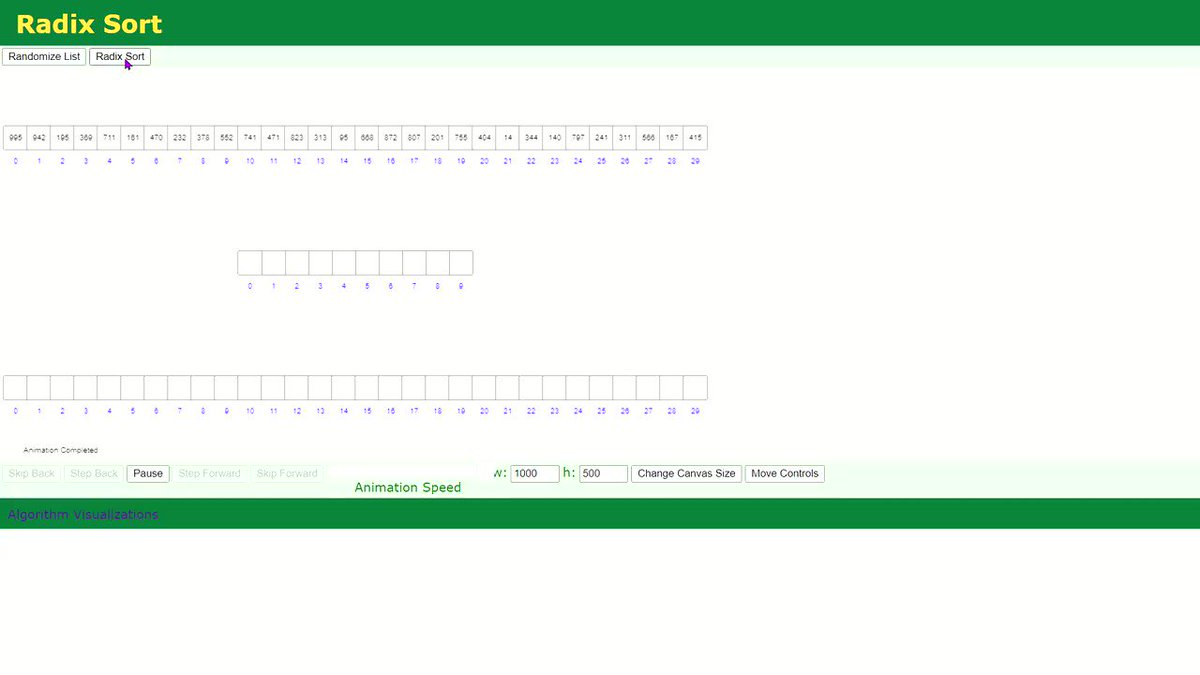
2️⃣ https://t.co/0WcFTWBfh9
- Dedicated to graph DS
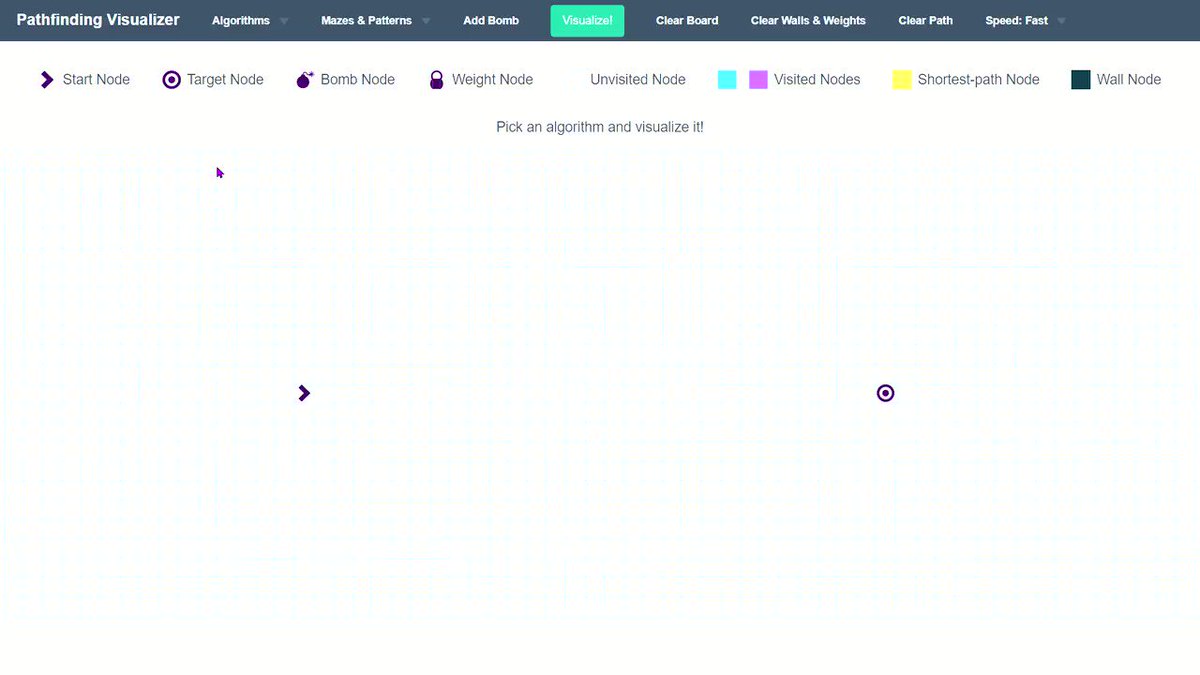
3️⃣ https://t.co/ShEQQkjtWD
- Visualizing data structures and algorithms through animation
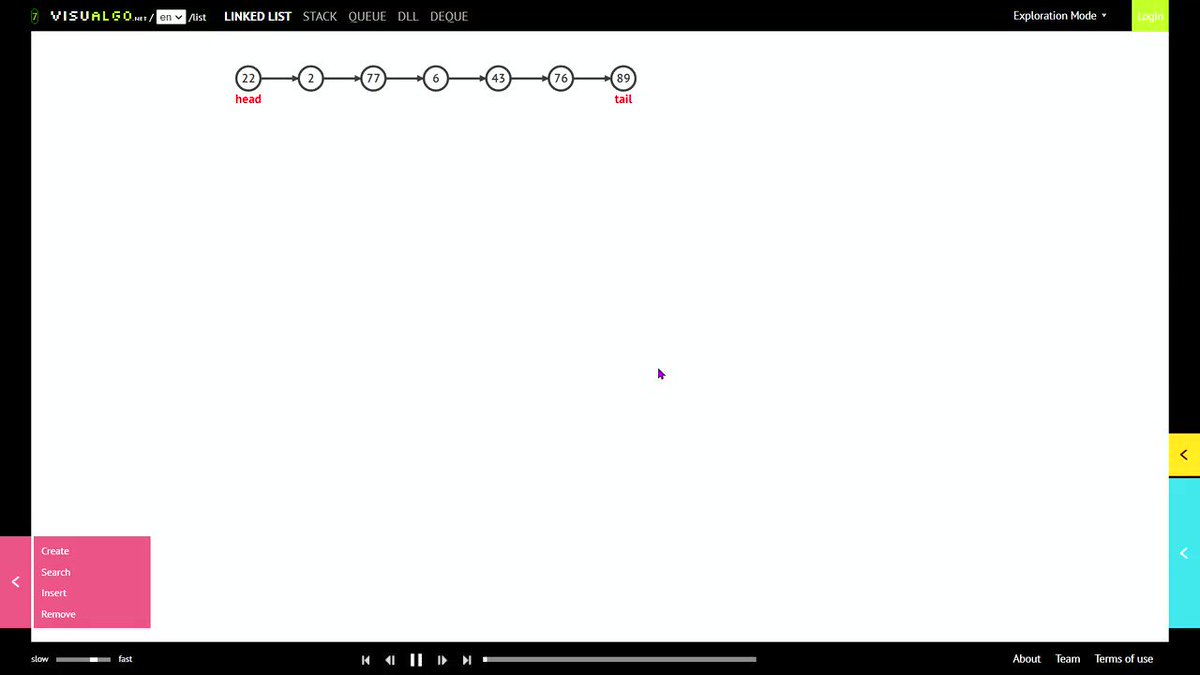
4️⃣ https://t.co/XxzwBa3vvZ
- All sorting algorithms animations
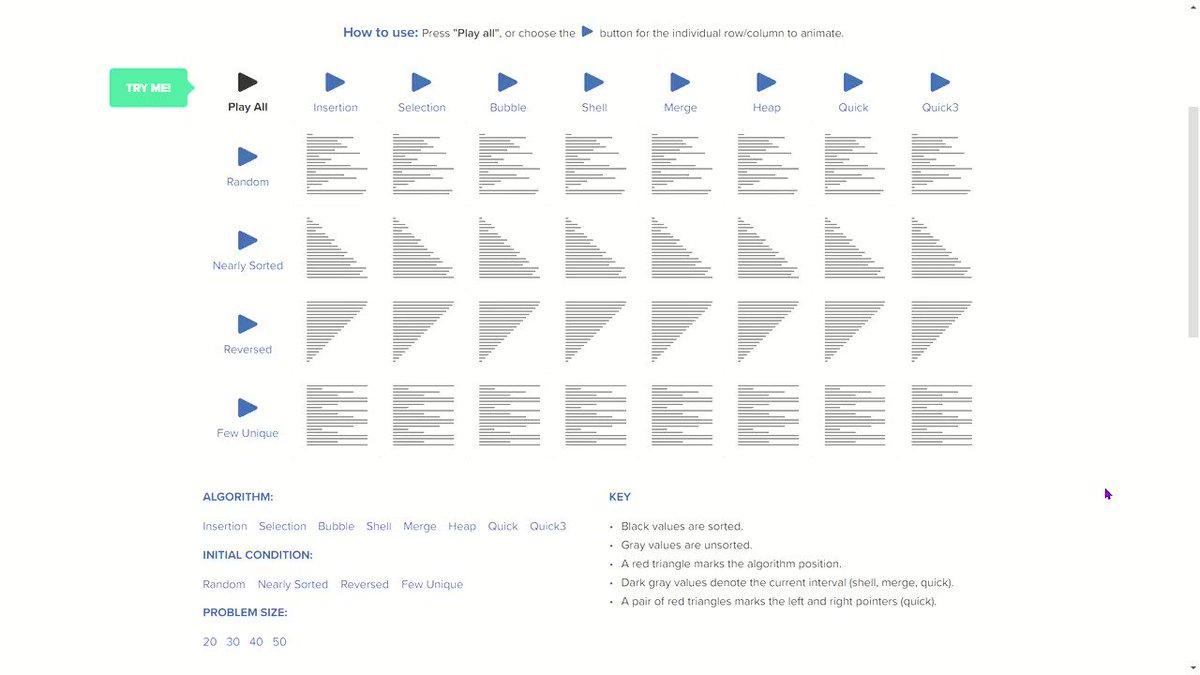
Thread 🧵👇🏻
1⃣ https://t.co/H2sKWKEeaz
- Learn DSA and visualize some complex programs. Definitely check it out.

2️⃣ https://t.co/0WcFTWBfh9
- Dedicated to graph DS

3️⃣ https://t.co/ShEQQkjtWD
- Visualizing data structures and algorithms through animation

4️⃣ https://t.co/XxzwBa3vvZ
- All sorting algorithms animations

You May Also Like
Joe Rogan's podcast is now is listened to 1.5+ billion times per year at around $50-100M/year revenue.
Independent and 100% owned by Joe, no networks, no middle men and a 100M+ people audience.
👏
https://t.co/RywAiBxA3s
Joe is the #1 / #2 podcast (depends per week) of all podcasts
120 million plays per month source https://t.co/k7L1LfDdcM
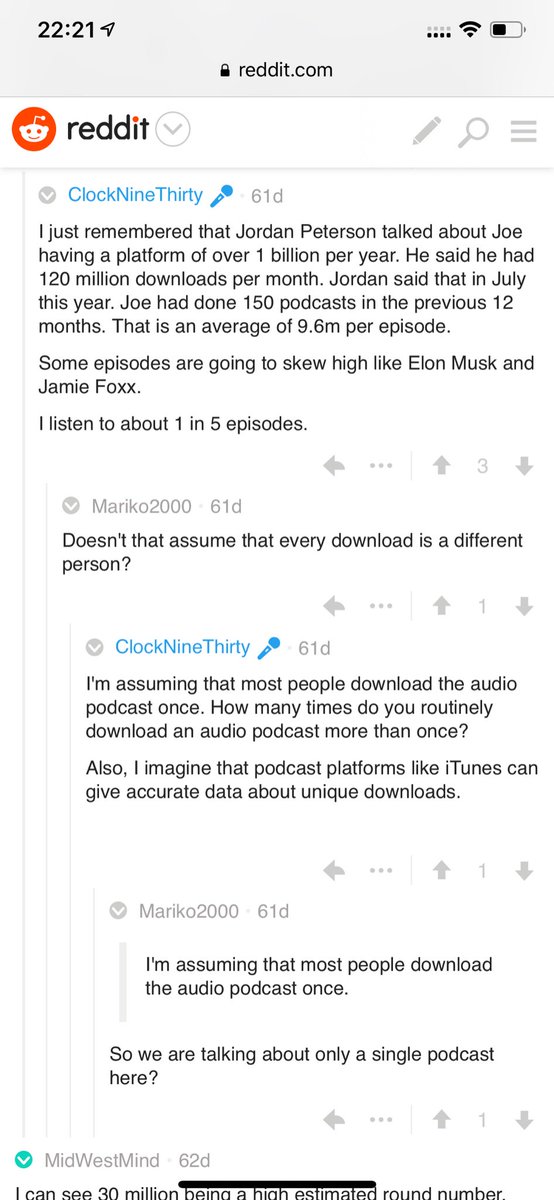
https://t.co/aGcYnVDpMu
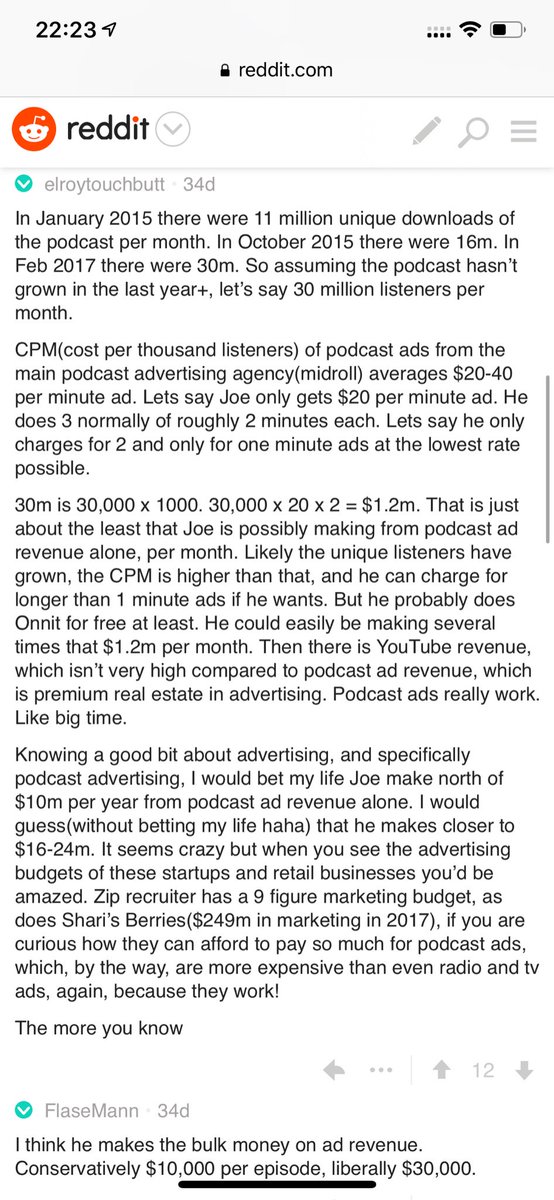
Independent and 100% owned by Joe, no networks, no middle men and a 100M+ people audience.
👏
https://t.co/RywAiBxA3s
Joe is the #1 / #2 podcast (depends per week) of all podcasts
120 million plays per month source https://t.co/k7L1LfDdcM

https://t.co/aGcYnVDpMu

I’m torn on how to approach the idea of luck. I’m the first to admit that I am one of the luckiest people on the planet. To be born into a prosperous American family in 1960 with smart parents is to start life on third base. The odds against my very existence are astronomical.
I’ve always felt that the luckiest people I know had a talent for recognizing circumstances, not of their own making, that were conducive to a favorable outcome and their ability to quickly take advantage of them.
In other words, dumb luck was just that, it required no awareness on the person’s part, whereas “smart” luck involved awareness followed by action before the circumstances changed.
So, was I “lucky” to be born when I was—nothing I had any control over—and that I came of age just as huge databases and computers were advancing to the point where I could use those tools to write “What Works on Wall Street?” Absolutely.
Was I lucky to start my stock market investments near the peak of interest rates which allowed me to spend the majority of my adult life in a falling rate environment? Yup.
Ironies of Luck https://t.co/5BPWGbAxFi
— Morgan Housel (@morganhousel) March 14, 2018
"Luck is the flip side of risk. They are mirrored cousins, driven by the same thing: You are one person in a 7 billion player game, and the accidental impact of other people\u2019s actions can be more consequential than your own."
I’ve always felt that the luckiest people I know had a talent for recognizing circumstances, not of their own making, that were conducive to a favorable outcome and their ability to quickly take advantage of them.
In other words, dumb luck was just that, it required no awareness on the person’s part, whereas “smart” luck involved awareness followed by action before the circumstances changed.
So, was I “lucky” to be born when I was—nothing I had any control over—and that I came of age just as huge databases and computers were advancing to the point where I could use those tools to write “What Works on Wall Street?” Absolutely.
Was I lucky to start my stock market investments near the peak of interest rates which allowed me to spend the majority of my adult life in a falling rate environment? Yup.









